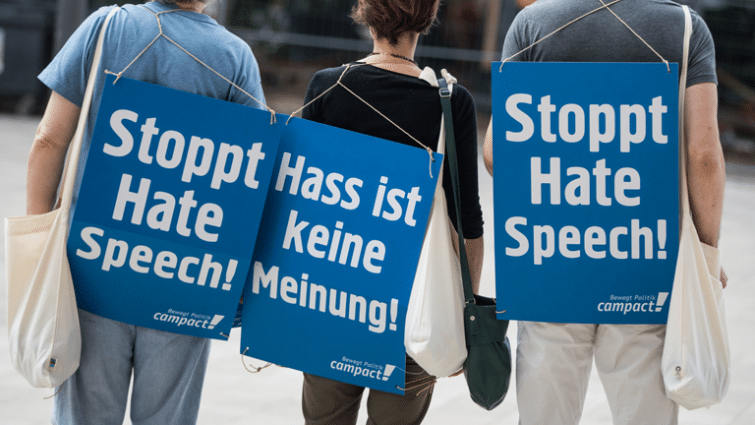Twitter won't disclose how it deals with hate messages
The fact that there are many people on the Internet who spread hate messages and hate speech is not new. At the latest since the invention of social networks, many users seem to regard the Internet as a kind of "lawless space.
Insults against queers are also (frighteningly) part of the daily routine for many. Over time, however, many platforms have decided to counteract this. Among other things, there are various functions that can be used to report hate speech, spam and co.
Twitter is currently steering a little against the tide here. Although a court in Paris has demanded that the platform disclose how it is combating hate speech on the Internet, the platform operator does not want to comment on this specifically. Many people are dissatisfied with the activities of the short message service in terms of combating hate messages. Among others, there are also many voices from the community that demand more transparency in this context.
What does the court ruling require?
The demands that are to be enforced via the court ruling, which is currently causing displeasure on Twitter, are quickly explained: A court in France has ordered the short message service to show how it prevents hate on its platform or how it reacts when hate messages are spread via its service.
However, the ruling was not "simply accepted". Instead, Twitter decided to file an appeal. The hearing that has now been scheduled in this connection has been set for mid-December.
Plaintiffs calling for more transparency around combating hate speech come from a wide range of backgrounds - including the LGBTQI+ community.
The court ruling stated that Twitter must provide clarification - in the form of documents showing how the news service intends to defend itself against racist, homophobic content, etc. The court also demanded information on how many tweets were objected to and deleted in France due to their content, and what the consequences were for posting the content in question. Furthermore, the court demanded information on how many tweets were objected to and deleted in France due to their content and what consequences the posting of the content in question had for the creators. In short: there were (or still are) several questions to be clarified, which currently remain unanswered for longer than some surely expected.
With the delay of the processes resonates a questionable message
The fact that Twitter is apparently refusing to cooperate with the court and comply with the requirement leaves a bad taste in many respects. After all, it should not be a problem to provide the relevant information upon request and within the specified period of two months.
The reaction of the complaining associations was correspondingly disappointed. Many of them are of the opinion that Twitter's approach to hate speech is clearly too lax and that an important weapon in the fight against homophobia and racism is not being used.
A (presumably) high number of unreported cases
Statistics on the topic of hate speech are now collected at regular intervals. Again and again, it becomes apparent that young people in particular are very strongly affected by hate on the Internet.
In 2019, for example, more than 70 (!) percent of people between the ages of 18 and 24 said they had already been confronted in some way with hate messages on the Internet. A direct, personal attack via the corresponding comments occurred with every 12th person.
However, the figures put forward in the course of the statistics are likely to provide only a small insight into the problem. The likelihood is that the number of unreported cases of hate speech is much higher. Many victims of cyber bullying do not dare to seek help and are even ashamed of what they experience. Therefore, far more people are likely to be affected by this type of crime than is made visible on paper.
Did you already know? Switzerland says "Yes, I do" to marriage for all
